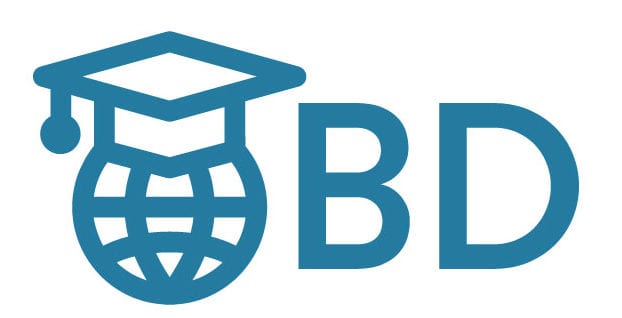Bill Gates, Mark Zuckerberg, Michael Dell, Steve Jobs, Julian Assange, Evan Williams, and Larry Ellison. We have heard their stories more times than we care to count – the college dropouts who became billionaires. Many of us have read their stories. these can be our stories, too, and we can join them in the rarified circle of the uber-rich and famous.
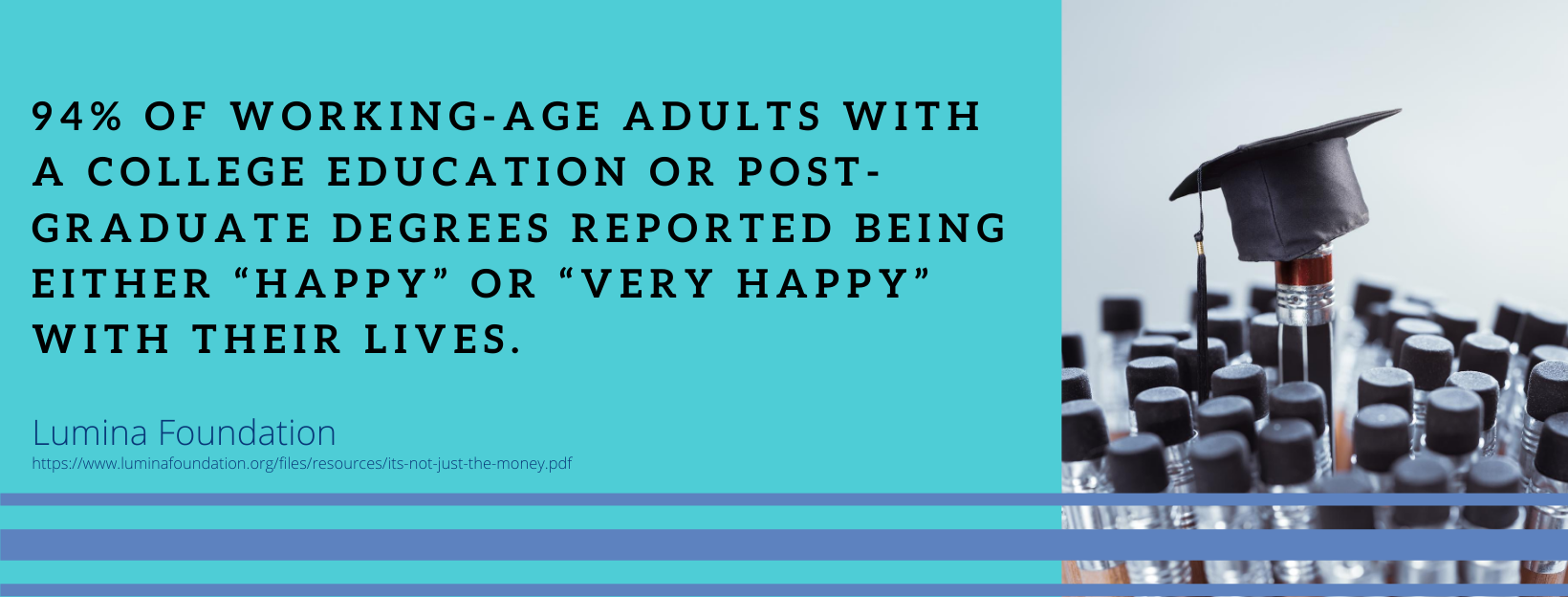
But while there’s an inspirational side to these stories, there’s also a detrimental side to such thinking! Quite a few people reading these stories will conclude that getting a college degree isn’t necessary for success in life. There’s also the thought that the things you need to enter the millionaire’s club are grind, grit and gumption, perhaps Lady Luck on your side.
Such thinking is also perpetuated by the difficulty experienced by many college graduates in finding good-paying jobs in their field of study. With the pandemic’s adverse impact on the national economy, it has become more challenging for college graduates to find jobs, too.
Several companies across diverse industries have temporarily laid off thousands of their workers since April 2020, and more have followed in subsequent months. According to the Bureau of Labor Statistics, 47.2% of Americans are jobless; this figure is derived from the 52.8% employment-to-population ratio or the number of employed people as a percentage of the adult population.
With companies either retrenching or closing their doors, many of which are permanent closures, college graduates need to be more flexible and open in their job attitude. This means taking jobs that aren’t in their field of study or jobs that they are typically hesitant about taking for their reasons. These jobs, for example, may have low pay, low prestige, or low promotion possibilities, to name a few.
There’s also the fact that as much as 15% of employers have also stopped their internship programs. These internship programs are among the best ways for college graduates to get one foot in the door and, thus, increase their hiring chances.
Despite these issues, many college graduates still consider their degrees as instrumental in their professional success. In an April 2019 GOBankingRates survey, nearly half of the currently employed participants polled felt that they wouldn’t have been able to secure their respective jobs without their degrees. When they were asked to rate the value of their degrees on a scale of 1 to 5 (1 being “not valuable” and five being “very valuable”), 44% answered with 5!
But there’s also a darker side to the survey. About two in five college graduates polled feel that their college years weren’t worth the tuition debt. This doesn’t come as a surprise since around 44 million Americans have a collective $1.6 trillion-plus student debt – and counting.
The bottom line: College graduates are likely to see their degrees as an asset, but they regret the liabilities incurred. The degrees are bragging rights, but the debts are dragging down their financial success.
Then again, we also have to point out that college graduates can earn 80% more than high school graduates, on average! Yes, college is expensive, but a college degree is vital to your success, now more than ever. No, obstacles like financial hardships shouldn’t deter you from finishing college, and it didn’t deter many successful billionaires either!
With that said, here are 12 reasons that make college education as vital as street smarts in attaining success in life.
12 Reasons Why College Is Vital to Your Success in Life
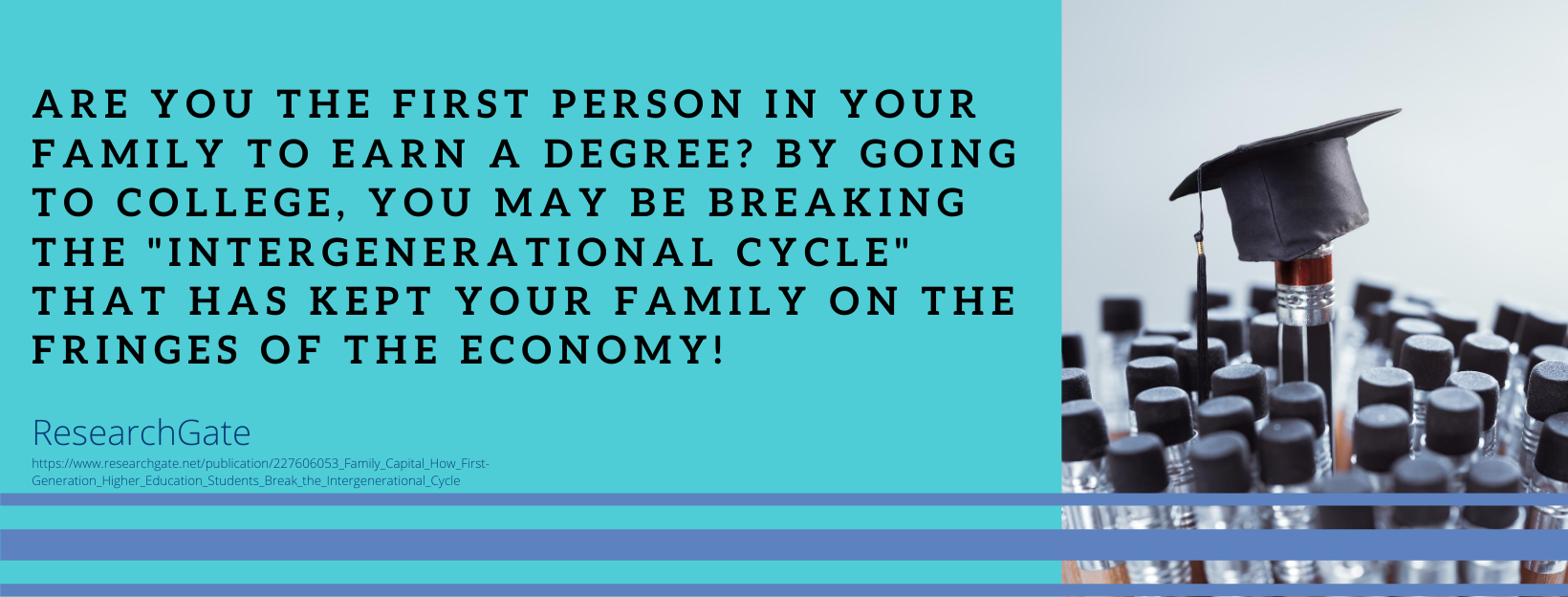
Getting a college education goes beyond earning more dollars and enjoying more job-related perks! You will likely enjoy more non-monetary benefits that make your hard work, sleepless nights, and even student debt worth it. You will also find that these benefits start while you’re still in college and continue well after your retirement.
1. Create and Expand Your Professional Network
We usually think of job opportunities and future earnings when considering the benefits of a college degree, and these are valid, too. But discussed less often are the networking opportunities that come with being in university!
In a LinkedIn report, career professionals are well-advised to become active in professional networking because of its benefits. In the said survey, 80% of professionals consider it to be vital to their career success. Of the polled professionals, 61% agree that regular online interaction with people on their network can open the doors of employment. Even a casual online conversation resulted in a new opportunity for 35% of the survey participants.
As with most things related to success, you have to start as early as possible in creating your professional network! You should be active in extracurricular activities in and out of your university. You can join professional societies, fraternities or sororities, and volunteer organizations where students, alumni, and leaders mingle.
You’re not just building friendships but also building relationships with people who can provide references, internship opportunities, and employment breakthroughs. We’ve heard stories of people who found their dream jobs or made their business dreams come true because of a friend of a friend!
2. Take Advantage of Personal Development Opportunities
Being a college student means meeting academic and non-academic challenges head-on, often with innovative approaches and sheer grit. Along the way, you will be experiencing personal growth that you probably didn’t expect! You may become more assertive, more compassionate, and more creative, mostly because college is a sink-or-swim experience.
You will also learn skills that are just as useful in college as in real life, too. These skills include leadership, conflict resolution, and time management learned while juggling your academic, social, and job responsibilities. You have to overcome challenges that come one after the other, and it can take its physical and mental toll if you let it.
And it isn’t an experience unique to yourself either! In studies conducted on college students, they became more aware, more autonomous, and more integrated, a prevailing direction that still emphasized their diversity. Indeed, people who have attained a college degree tend to become more tolerant of other people’s differences!
Of course, these valuable skills aren’t learned in a day! You have to be open to the experiences that will result in your personal development, even seeking them out. You can do it, again, by creating and expanding your network and being an active member of your community, wherever you may be.
3. Make More Money Throughout Your Career
Of course, the driving force in the decision to get a college degree is the opportunity to make more money! This is also true when shooting for a master’s degree and a doctoral degree.
You may also find that while a bachelor’s degree should be enough to establish your career, you may want to earn a master’s degree in your field of work. According to the Bureau of Labor Statistics, jobs requiring a master’s degree were projected to increase by 18% in the last ten years. With the increasingly competitive job market, especially with the unemployment rate skyrocketing due to the pandemic-related retrenchment and closures, it’s a means to differentiate yourself.
But first, you should get your bachelor’s degree because it’s your one foot in the door! According to BLS, employees with a bachelor’s degree earned $1,432/week, on average, more than employees with a high school diploma or its equivalent. Throughout a 20-year career, it can add up to $1 million or more.
And a U.S. Department of Education 2015 report agrees. An average worker armed with a bachelor’s degree may earn about $1 million more than a high school graduate.
The bottom line: Getting a bachelor’s degree may have its fair share of challenges, but if you stick with it, your rewards will come later. Think of it as sacrifice now, success later!
4. Have More and Better Career Opportunities
We have to admit that many college graduates don’t end up in careers related to their field of study. We also agree with the observation that your college major won’t matter as much as you thought it would in your career.
But there are exceptions, too, since specific careers demand alignment between the bachelor’s degree and the job. These include architecture, engineering, and medical professions, particularly doctors, nurses, and physical therapists.
Your degree, nonetheless, is a requisite for competitiveness in the job market, so work for it. In an Economic News Release, 76% of the people in their 20s who held a bachelor’s degree were employed (October 2019 data). This means college graduates have more job opportunities, and many of these are better in terms of benefits, too.
But keep in mind that it’s your work experience, soft skills, and purpose that will form the foundation of your career. You must work toward gaining these aspects while also doing well in college.
5. Gain Strong Leadership Skills
Of course, being a college graduate and a leader aren’t synonymous, but studies have shown that these are closely related. In a Taylor & Francis Online study, for example, 94% of chief executive officers, business leaders, and politicians, as well as millionaires and billionaires, have a college degree. This isn’t just attending college and then dropping out, but getting the diploma!
Of these successful people, 50% graduated from elite schools, including the Ivy League. We can name plenty of prime examples – Sheryl Sandberg, Marissa Mayer, Jeff Bezos, and Martha Stewart.
Don’t think, too, that most of these ultra-successful people were born with a silver spoon and, thus, graduated from college without student debt. We can also name the rich and famous who grew up poor but finished their college education despite the odds – Howard D. Schultz, Kenneth Langone Sr., and J.K. Rowling.
The Taylor & Francis study also pointed out that roughly 6% of people who became hugely successful didn’t have a college education. Let’s just say that these are the exceptions to the rules
that, unfortunately, have become justifications for not getting into college.
6. Enjoy Greater Job Security and Satisfaction
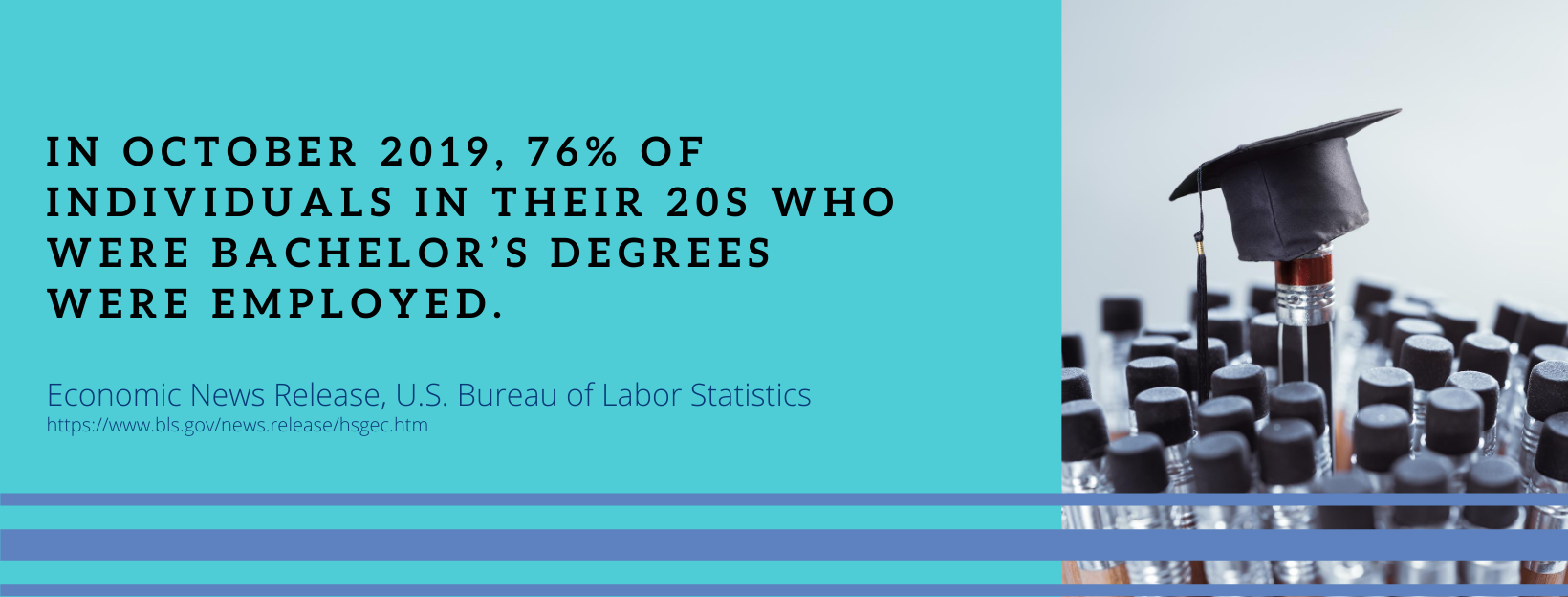
In an economic recession, employees with college degrees are less likely to be laid off because they are perceived as more valuable to the company. Many employers pay for their current employees’ college tuition because a bachelor’s degree is seen as a wise investment, not just for the employees but also for their companies.
You are also more likely to enjoy greater career stability with a bachelor’s degree! According to BLS data, about 2.2% of college graduates will face unemployment, while 4.1% of high school graduates will face its challenges. Again, your college diploma will translate to better job security because your cumulative knowledge and skills are more valuable.
But it isn’t just about the job security, career stability, and money that a college degree brings! In a 2016 Pew Research report, 60% of employees with a bachelor’s degree assert that their job provides them with a sense of identity. The number is higher for employers with a post-graduate degree – 77% of workers agree with the job-sense of identity correlation.
The bottom line: You’re more likely to enjoy your job and career trajectory if you have a college degree! This is because of your above-average income and employment benefits, as well as your advancement opportunities and leadership position.
7. Even Your Family Benefits from Your Degree
If you have a family, your family members also benefit from your college degree in many ways. For one thing, they will enjoy a more stable life because of your income and employment perks. These include health insurance coverage, life insurance benefits, and retirement investment, as well as vacation time and travel perks. These perks are rarely if ever, offered to employees with a high school degree.
In addition, your children and grandchildren are more likely to get a college education and push through with it. Your decision to break the mold, if you’re the first person in your family to finish college, will set the path for your descendants. You’re breaking the intergenerational cycle that has kept your family on the fringes of the economy!
8. Think of it as a Worthwhile Investment in Your Future
College demands your time, energy, and money, and it will be overwhelming at times. But think of it as your down payment on your future success, and you will push through these challenges.
Your bank account may be little to nil during your college years, but you have the opportunity to fatten it, thanks to the more plentiful job offers and more job perks. Numerous studies point to it, too. In a 2016 Lumina Foundation report, for example, working-age adults with college degrees are up to 10 times more likely to have a bank account in comparison with high school graduates.
Furthermore, college graduates were more likely to avail of savings in various forms. They were more likely to get better credit terms and less likely to avail of tax refunds and payday loans. Just 2.3% of them did in comparison with 9.2% of people with only a high school education.
And then there’s the homeowner equation, a motivation for many people dreaming of a college degree. You will find it easier to buy your own home with a college degree. Real estate companies are also more likely to view college graduates with stable jobs for mortgages.
In a 2016 Zillow report, furthermore, 75% of home buyers were college graduates. In contrast, only 11% were high school graduates, and 14% attended college but didn’t earn their bachelor’s degrees.
9. Live Longer, Too
There’s no guarantee because life is full of uncertainty, of course, and we’re only human, but a 2016 Brookings Institute report concluded that an extra year of a college education could reduce the mortality rate! Just imagine a 15% to 19% reduction in the mortality rate for every additional year in college.
High school graduates, the report further states, have double the mortality rate of people who have attended college or have a college degree.
10. Enjoy Better Overall Health
The longer lifespan of people who attended college or who have a college degree can be attributed to their healthier habits. In a Lumina Foundation report, these people adopt healthier habits than those who only have a high school education. The report also pointed out the strong positive association between eating more fruits and vegetables, exercising, and avoidance of cigarettes with higher educational attainment.
11. Be Happier, Too
In yet another Lumina Foundation report, 94% of working-age adults with a college education or post-graduate degrees reported being either “happy” or “very happy” with their lives. They are happier overall, and it isn’t surprising considering their more comfortable socio-economic status and their high job satisfaction.
Did you know that college-educated people are more likely to be in a happy, fulfilling, and lasting marriage? In a 2015 Pew Research Center report, about 78% of college-educated women in a first marriage can expect their relationship to last for 20 years, at least. In contrast, only 40% of women with only a high school education can expect the same longevity.
12. Be a Better Citizen
Your college education isn’t just about you and your family. You can also become a productive member of society, change the lives of other people, and change your community, even the world!
In a Lumina Foundation report, 40% of working-age, college-educated adults engaged in community volunteer activities in the past year. Just 17% of their high school-educated counterparts did so. The same report also pointed out that college-educated people donated three times more money to charitable organizations and voted more consistently during local elections.
These contributions to society don’t stop there! College graduates also contribute more in taxes, rely less on government services, and undertake more community projects. These are benefits to society that cannot be measured solely in terms of dollars, too.
These benefits of getting a college degree should be sufficient reason to push through despite the challenges coming your way!
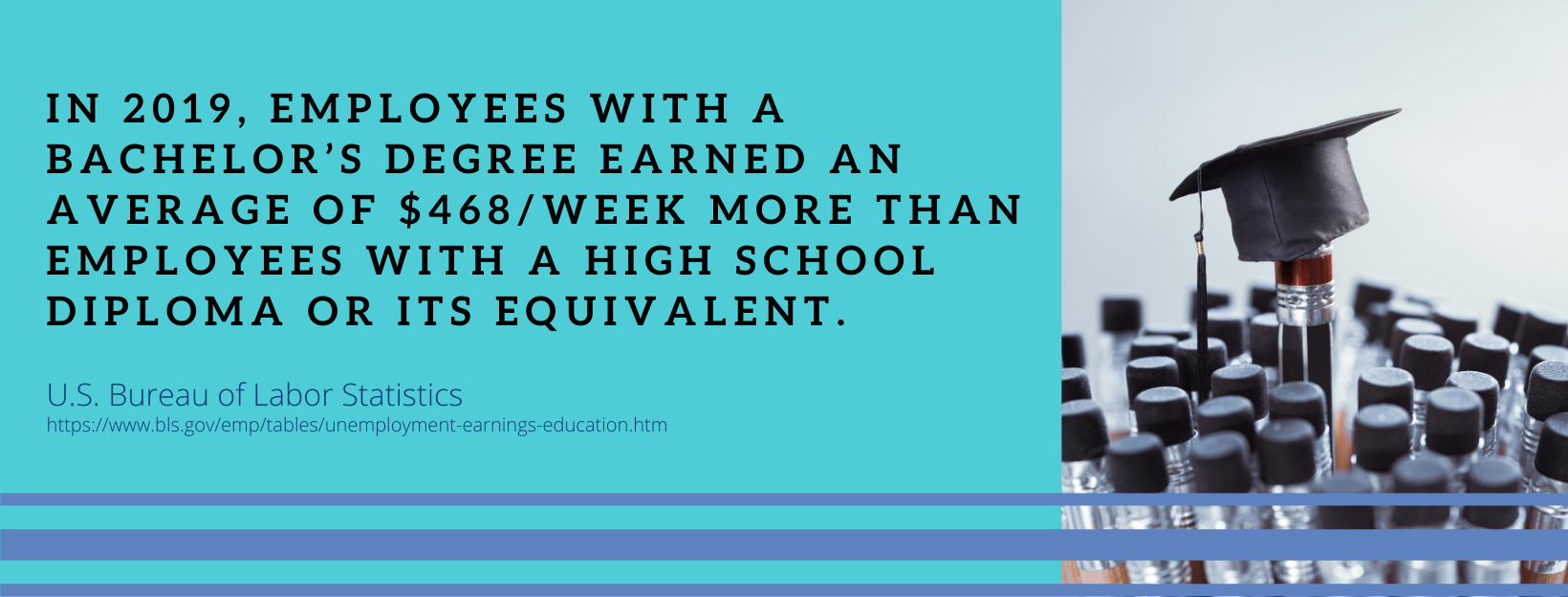
But College Isn’t the Only Path to Success
But we also acknowledge that not everybody can attend college for many reasons. The rising cost of college tuition will deter many high school students and graduates, especially since the average cost of tuition has increased by more than twice the 1986 level.
You may have your reasons, too, aside from the financial cost. You may, for example, be reluctant about spending 4-5 years more in school. You may also want to plunge into the job market to contribute to your family’s household finances. You may also want a trade or vocation because it’s your passion.
All of these are valid reasons! You will also agree that a college education isn’t the be-all and end-all of viable employment or entrepreneurship, as well as happiness and success in life.
Trade schools, or vocational schools, are also recommended because of their intensive training in a wide range of skilled trade jobs. Enrollment in these schools also provides several advantages over a college education. These include an open enrolment process (no lengthy and elaborate acceptance process); lasts for a short time, usually two years or less; and provides practical knowledge and skills for specific careers.
There are also several top-tier two-year trade schools where their alumni are in high-paying jobs. These trade schools offer a myriad of courses that lead to high-paying jobs in high-growth areas. These courses include network architecture, database administration, cardiovascular technology, and project construction management, among others.
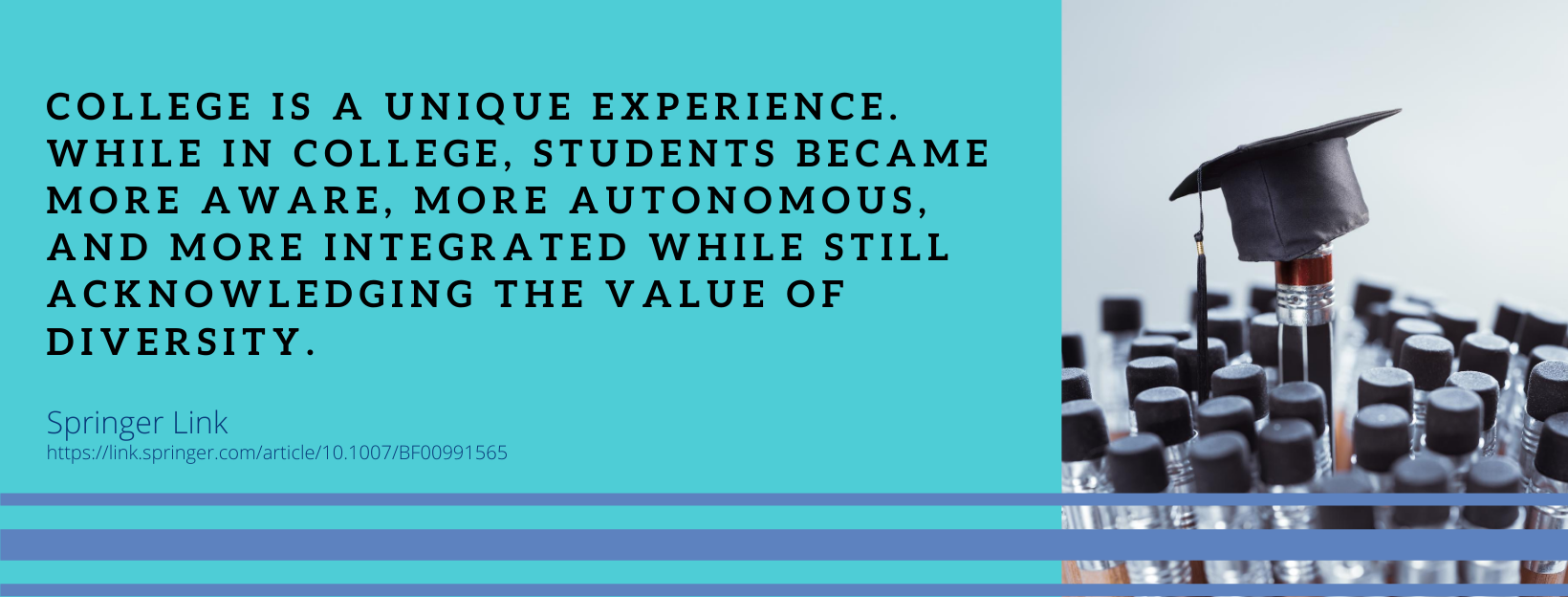
But why not just drop out of college and become like Bill Gates, Steve Jobs, and Mark Zuckerberg? Going to a trade school is still getting an education beyond high school. You may still insist on following their path, but here’s the thing: NOT every college dropout will become as successful as they are!
The college dropout billionaire stereotype has several holes in it, as mentioned above. But let’s reiterate to get the point across even better. These college dropouts who eventually become super-rich are a statistical anomaly, and a look at the Forbes 400 confirms it.
Of the 362 billionaires on the Forbes 400 whose education records are public knowledge, only 44 of them were college dropouts. This means only 12.2% of the 400 wealthiest people in the United States dropped out of school. The rest completed college, many of them in Ivy League universities.
We are, however, strongly attracted to the “college dropout who became rich beyond our wildest imagination” stories because they are exciting, even thrilling. We aren’t as attracted to the “college graduate who made it good in the corporate or business world” stories because they are annoying.
Conclusion
Admittedly, the college path isn’t for everybody. But if you can aim for a college education, you should do so with all your heart and soul! You will encounter challenges – and believe us, every college student, regardless of the dollar amount of their bank account, will find the path challenging – but these are par for the course.
If you’re worried about the costs, you will find plenty of resources to deal with them. You can look into scholarships and grants, work-study programs, and financial aid, among other ways of reducing college costs. You can also manage your student loan, so you’re not overwhelmed with it.
Getting a college education is a choice, and it’s a choice that you should make as early as possible! Start now, if you can.
